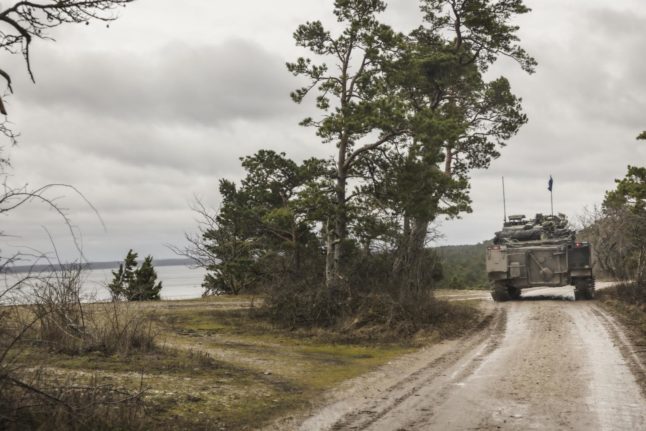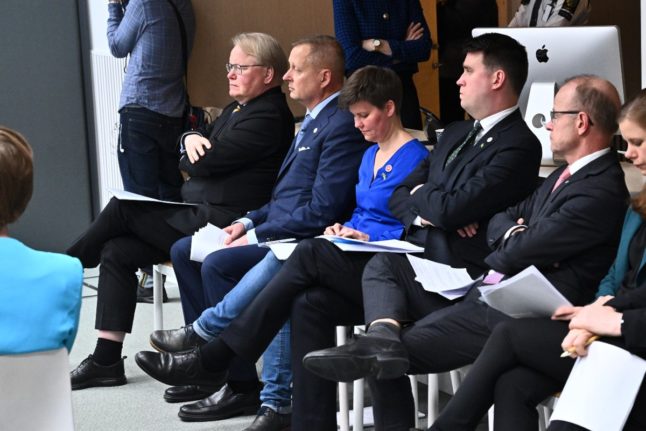That would bring spending to 2.6 percent of GDP, thereby exceeding the Nato target of two percent.
The Swedish Defence Commission said the Scandinavian country needed to respond to new conditions, citing heightened tensions in Europe following Russia’s invasion of Ukraine and Sweden’s recent integration into the Nato military alliance.
The commission recommended additional army brigades and navy personnel, a rise in the number of conscripts trained up every year and the creation of Sweden’s first ever rocket artillery unit.
“Together, the (recommended) additions for military defence amount to 52.8 billion kronor in 2030,” the commission said in a report presented to the government on Friday.
The commission is composed of MPs from all parties in parliament, as well as experts and representatives of various authorities, including the armed forces.
Its report will form the basis for a decision on defence spending in parliament this autumn, which the commission said would be “historic”.
“The deteriorating security situation, combined with Sweden’s obligations as an Ally, requires an increased ambition for the military defence,” the government said on its website on Friday.
Sweden’s defence budget for 2024 is around 119 billion kronor.
With the proposed increase, it would reach 185 billion kronor, defence commission chair Hans Wallmark told a press conference.
More troops
Wallmark said the commission wanted to bring forward the deployment of two new army brigades so the force had a total of four by 2030.
MPs wanted there to be three mechanised brigades and one infantry brigade, he told reporters.
The commission also proposed the creation of Sweden’s first rocket artillery unit, saying it believed the creation of a full battalion was “pressing” but needed to be evaluated further.
It recommended a 50-percent expansion in the number of conscripts trained every year.
“We want to train 12,000 conscripts a year by 2032”, said Wallmark, up from the 8,000 a year currently trained.
More personnel should also be provided for the navy, he said.
Civil Defence Minister Carl-Oskar Bohlin made waves in January when he told a defence conference “there could be war in Sweden”.
Shortly after, armed forces commander Micael Bydén also said Swedes needed to “mentally prepare for war”.
READ ALSO:
- Swedish defence analyst: ‘We should be worried about war in Sweden’
- What should foreigners in Sweden think about when preparing for a war or crisis?
- PODCAST: Why are politicians warning ‘there could be war in Sweden’?
Sweden drastically slashed its defence spending after the end of the Cold War but reversed course following Russia’s 2014 annexation of Crimea.
In March 2022, after Russia’s fully fledged invasion of Ukraine, Stockholm announced it would increase spending again, aiming to dedicate two percent of GDP to defence “as soon as possible”.
Late last year, the government said military spending would exceed the two-percent goal in 2024.



 Please whitelist us to continue reading.
Please whitelist us to continue reading.
0if course Sweden will have to spend more on defence, you’re US puppets now and have to obey the rules of the American Industrial war complex. I don’t expect the Local to show this, you will be in trouble for not following the narrative 🤣 prove me wrong if you dare!!